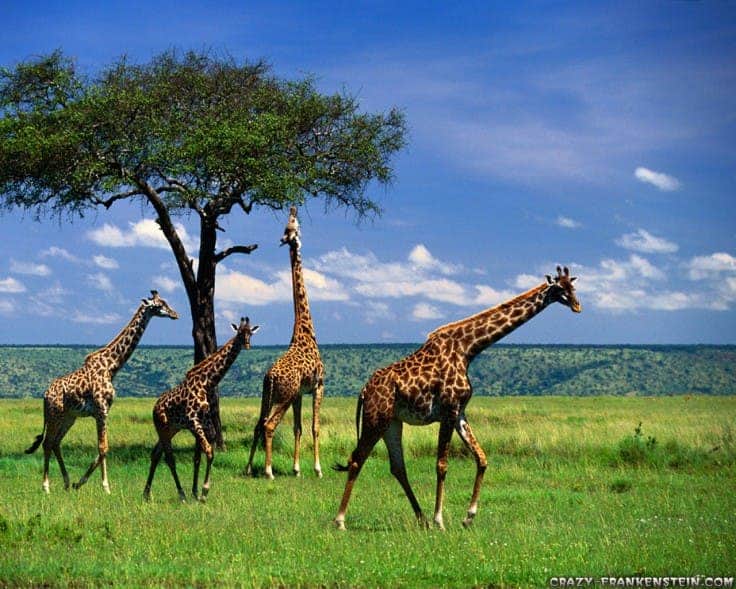Evolution promotes the survival of the most adept members of a species — but exactly how much “fitter” an organism has to be, compared to its peers, to hold a selective advantage over them? A new study from Uppsala University has measured the forces that shape bacterial genomes, and determined that a difference as tiny as one hundredth of a percent is sufficient to determine the winners and losers in the evolutionary race.
The go-to phrase when trying to explain evolution in a nutshell has to be “survival of the fittest.” Interestingly enough, the phrase was coined in 1864 by British philosopher Herbert Spencer to draw a parallel between his economic theories and Darwin’s work — it was only later adapted into the theory of evolution. But it does a pretty good job of explaining the general concept.
For example, in giraffes a longer necks represents an evolutionary advantage as it allows them to reach more food. Over time, nature selects against short-neck giraffes who, by contrast, are hard pressed to get enough to eat. They produce less offspring, have less energy to defend against predators, and eventually disappear along with the genes for short necks.

But the phrase does leave some questions unanswered; for example, how much longer has one giraffe’s neck have to be compared to the others’ to count as “fitter” in the eyes of evolution?
Professor Diarmaid Hughes and graduate student Gerrit Brandis set out to measure just that, by studying bacterial genomes. The team observed Salmonella in their experiments, but the mechanisms they investigated (such as competition for food, or the selective pressure to use that food to grow faster than their peers) hold true for all organisms.
In order to grow, bacteria must translate their genetic code into amino acids and then assemble them into proteins. Growth is thus bottle-necked by the the speed of translation. Genetic information also has ‘redundancy’, meaning that there are several different pieces of code (codons) that can be translated into any one amino acid.
Brandis and Hughes wanted to know whether it mattered which particular codons were used to make EF-Tu, one of the most important proteins in Salmonella. They altered the genetic makeup of the bacteria and found that switching even a single codon in the gene for this protein with any one of the alternative codons reduced the organism’s fitness. On average, changing a codon reduced the speed of expression by 0.01 percent per generation.
But even this tiny amount was enough to determine a selective advantage, creating a codon usage bias — the widespread use of particular codons to make highly expressed proteins. This bias is seen in nearly all fast-growing organisms, such as bacteria and yeasts that cause infections in humans.
Over hundreds of millions of years, translation mechanisms were shaped by evolution to be as efficiently as possible — and in the adaptation race, even a hundredth of a percent counts.
The full paper, titled “The Selective Advantage of Synonymous Codon Usage Bias in Salmonella” has been published online in the journal PLoS Genetics and can be read here.






